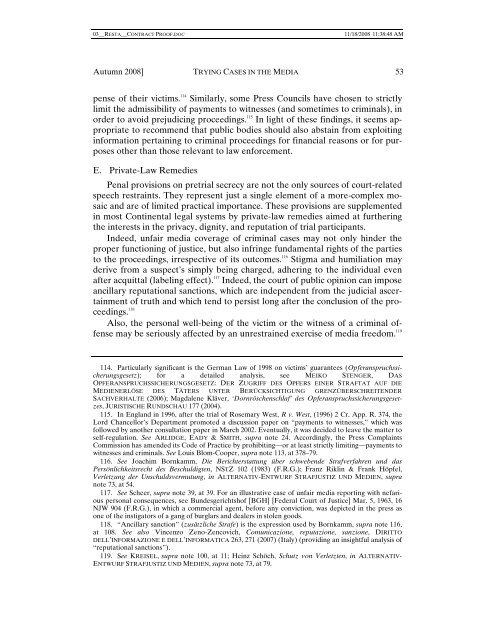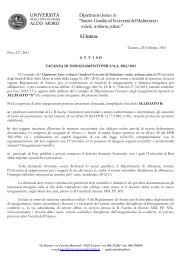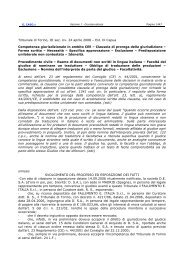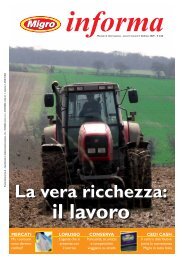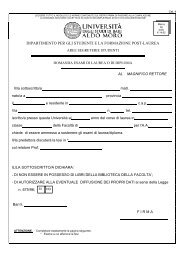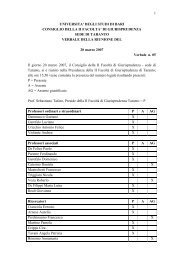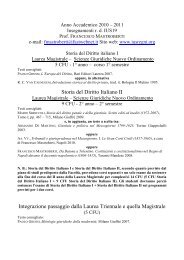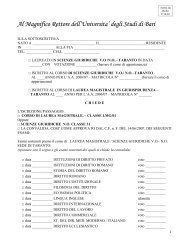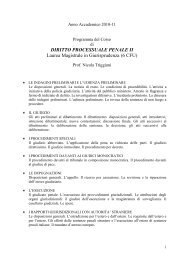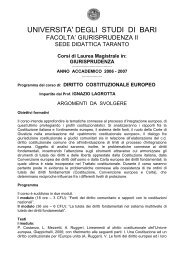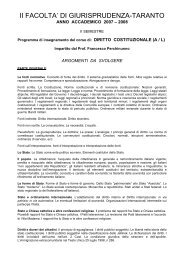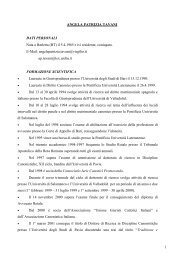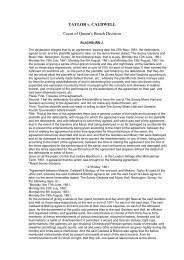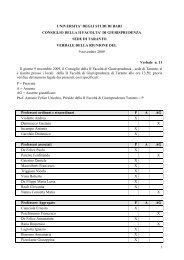TRYING CASES IN THE MEDIA: A COMPARATIVE OVERVIEW
TRYING CASES IN THE MEDIA: A COMPARATIVE OVERVIEW
TRYING CASES IN THE MEDIA: A COMPARATIVE OVERVIEW
Create successful ePaper yourself
Turn your PDF publications into a flip-book with our unique Google optimized e-Paper software.
03__RESTA__CONTRACT PROOF.DOC11/18/2008 11:38:48 AMAutumn 2008] <strong>TRY<strong>IN</strong>G</strong> <strong>CASES</strong> <strong>IN</strong> <strong>THE</strong> <strong>MEDIA</strong> 53pense of their victims. 114Similarly, some Press Councils have chosen to strictlylimit the admissibility of payments to witnesses (and sometimes to criminals), inorder to avoid prejudicing proceedings. 115 In light of these findings, it seems appropriateto recommend that public bodies should also abstain from exploitinginformation pertaining to criminal proceedings for financial reasons or for purposesother than those relevant to law enforcement.E. Private-Law RemediesPenal provisions on pretrial secrecy are not the only sources of court-relatedspeech restraints. They represent just a single element of a more-complex mosaicand are of limited practical importance. These provisions are supplementedin most Continental legal systems by private-law remedies aimed at furtheringthe interests in the privacy, dignity, and reputation of trial participants.Indeed, unfair media coverage of criminal cases may not only hinder theproper functioning of justice, but also infringe fundamental rights of the partiesto the proceedings, irrespective of its outcomes. 116Stigma and humiliation mayderive from a suspect’s simply being charged, adhering to the individual evenafter acquittal (labeling effect). 117 Indeed, the court of public opinion can imposeancillary reputational sanctions, which are independent from the judicial ascertainmentof truth and which tend to persist long after the conclusion of the proceedings.118Also, the personal well-being of the victim or the witness of a criminal offensemay be seriously affected by an unrestrained exercise of media freedom. 119114. Particularly significant is the German Law of 1998 on victims’ guarantees (Opferanspruchssicherungsgesetz);for a detailed analysis, see MEIKO STENGER, DASOPFERANSPRUCHSSICHERUNGSGESETZ: DER ZUGRIFF DES OPFERS E<strong>IN</strong>ER STRAFTAT AUF DIEMEDIENERLÖSE DES TÄTERS UNTER BERÜCKSICHTIGUNG GRENZÜBERSCHREITENDERSACHVERHALTE (2006); Magdalene Kläver, ‘Dornröschenschlaf’ des Opferanspruchssicherungsgesetzes,JURISTISCHE RUNDSCHAU 177 (2004).115. In England in 1996, after the trial of Rosemary West, R v. West, (1996) 2 Cr. App. R. 374, theLord Chancellor’s Department promoted a discussion paper on “payments to witnesses,” which wasfollowed by another consultation paper in March 2002. Eventually, it was decided to leave the matter toself-regulation. See ARLIDGE, EADY & SMITH, supra note 24. Accordingly, the Press ComplaintsCommission has amended its Code of Practice by prohibiting—or at least strictly limiting—payments towitnesses and criminals. See Louis Blom-Cooper, supra note 113, at 378–79.116. See Joachim Bornkamm, Die Berichterstattung über schwebende Strafverfahren und dasPersönlichkeitsrecht des Beschuldigten, NSTZ 102 (1983) (F.R.G.); Franz Riklin & Frank Höpfel,Verletzung der Unschuldsvermutung, in ALTERNATIV-ENTWURF STRAFJUSTIZ UND MEDIEN, supranote 73, at 54.117. See Scheer, supra note 39, at 39. For an illustrative case of unfair media reporting with nefariouspersonal consequences, see Bundesgerichtshof [BGH] [Federal Court of Justice] Mar. 5, 1963, 16NJW 904 (F.R.G.), in which a commercial agent, before any conviction, was depicted in the press asone of the instigators of a gang of burglars and dealers in stolen goods.118. “Ancillary sanction” (zusätzliche Strafe) is the expression used by Bornkamm, supra note 116,at 108. See also Vincenzo Zeno-Zencovich, Comunicazione, reputazione, sanzione, DIRITTODELL’<strong>IN</strong>FORMAZIONE E DELL’<strong>IN</strong>FORMATICA 263, 271 (2007) (Italy) (providing an insightful analysis of“reputational sanctions”).119. See KREISEL, supra note 100, at 11; Heinz Schöch, Schutz von Verletzten, in ALTERNATIV-ENTWURF STRAFJUSTIZ UND MEDIEN, supra note 73, at 79.


